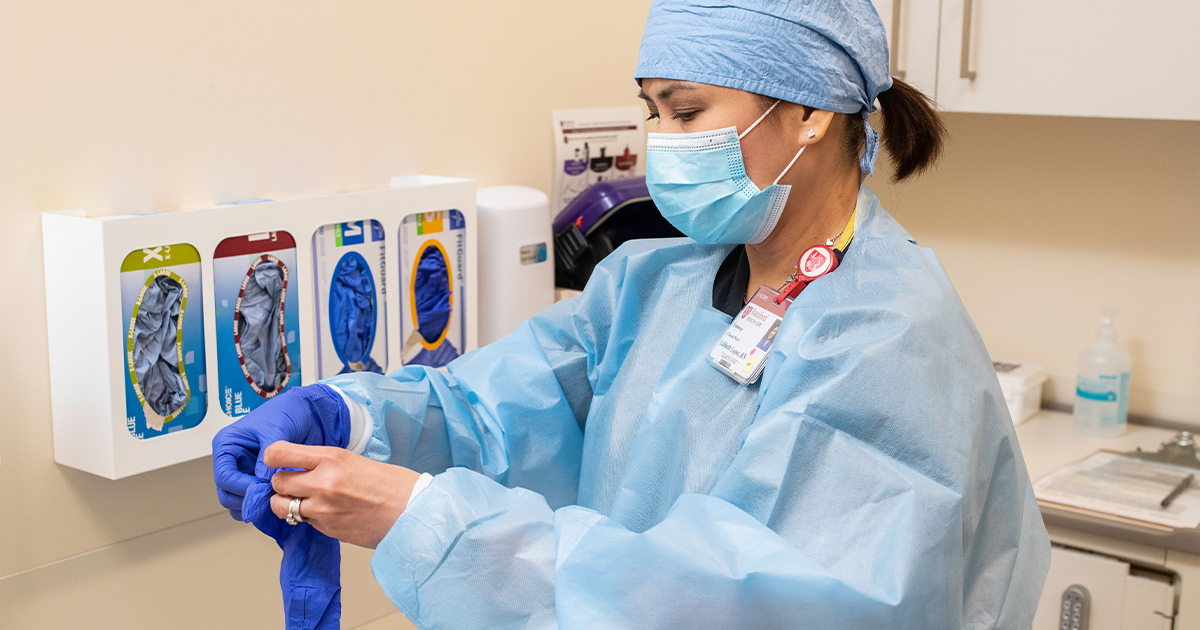Stanford Echocardiography and Vascular Imaging Center
Part of Cardiovascular Health

Leaders in Echocardiography and Vascular Imaging
We understand that medical testing – and waiting for results – can be stressful. Our expert team performs the advanced testing your doctor needs to make important decisions about your care. We use the latest technology in echocardiography and vascular ultrasound for high-quality imaging to deliver faster, precise results.
300 Pasteur Drive
3rd Floor, Clinic B36
Stanford,
CA
94305
What We Offer You for Echocardiography and Vascular Imaging
- Specialized expertise in diagnostic testing and screening for the most complex heart and vascular conditions to help guide your care. Go to Conditions Screened
- Advanced testing options including echocardiography and vascular imaging for more precise and accurate results to support decisions about your treatment. Go to Tests Offered
- Active research program in conjunction with Stanford Cardiovascular Health to develop more effective screening and diagnostic options. Go to Clinical Trials
- Team-based approach in which we work closely with your doctor to understand your unique case, so you undergo only the tests that are necessary. Go to Your Care Team
- Comprehensive support services, such as lodging assistance and interpreter services, to help make your time with us as comfortable as possible. Go to Support Services
- Ease of access with all echocardiography and vascular imaging technology in one location. Go to Accessing Care
Our specialists work with doctors across multiple programs and specialties to conduct the tests they need to provide you with the right care at the right time. Whether it’s making a diagnosis or making sure you’re ready for surgery, our testing and screening help your doctor create the best care plan for you.
Doctors trust us with their patients who have complex heart and vascular conditions. We combine expertise and leading-edge technology to deliver high-quality imaging quickly and with compassion.
Conditions
Symptoms
Conditions needing echocardiography screening:
- Arrhythmias
- Cardiac Trauma
- Cardiomyopathy
- Cardiomyopathy Device Evaluation
- Cardiomyopathy Device Evaluation for Valvular conditions
- Native Valve Stenosis
- Native Valve Regurgitation
- Prosthetic Valves
- Infective Endocarditis
- Congenital Heart Disease
- Evaluation of Aortic Disease
- Heart Attack
- Heart Failure
- Heart Transplant
- High Blood Pressure (Hypertension)
- Pulmonary Hypertension
- Pulmonary Embolism
- Myocardial Ischemia/Infarction Suspected Cardiac Mass
- Stroke (TIA)
- Suspected pericardial conditions
- Suspected cardiovascular source of embolus (Peripheral embolic event)
Conditions needing vascular ultrasound screening:
- Angio/hemodialysis access
- Aneurysmal and occlusive aortic disease (Thoracic aortic aneurysm)
- Arterial insufficiency management
- Cerebrovascular disease
- Chronic venous insufficiency
- Cramping and pain in the arms and legs (Intermittent Claudication)
- DVT management and treatment
- Limb ischemia (inadequate blood flow to arms/legs)
- Management of vascular complications and infections
- Mesenteric, renal and peripheral arterial aneurysms
- Mesenteric ischemia
- Peripheral Vascular Disease (PVD)
- Atherosclerosis
- Vascular malformation
- Deep Vein Thrombosis (DVT)
- Chronic Venous Insufficiency (CVI)
- Carotid artery disease/Carotid artery stenosis
- Renal vascular hypertension
- Stroke
- Thoracic outlet syndrome
- Thromboembolic disease
- Transient ischemic attacks (mini stroke/TIA)
- Varicose veins
- Vascular injuries in high performance athletes
Every test originates from your doctor’s order. Your doctor may refer you to us if you have symptoms of a heart or vascular condition.
Symptoms needing echocardiography evaluation:
- Chest Pain, pressure or discomfort
- Fainting (Syncope)
- Lightheadedness or dizziness (Presyncope)
- Palpitations
- Shortness of breath
Symptoms needing vascular evaluation:
- Back pain associated with abdominal aortic aneurysm
- Changes in color of the feet
- Cramping (Intermittent Claudication) in the legs when walking or exercising
- Numbness of the legs or feet
- Pain due to blockage of blood flow (Ischemic pain)
- Poor wound healing in legs or feet
- Swelling in the arms or legs (edema)
- Symptoms of stroke or mini stroke (TIA)
- Uncontrollable high blood pressure (hypertension)
Conditions needing echocardiography screening:
- Arrhythmias
- Cardiac Trauma
- Cardiomyopathy
- Cardiomyopathy Device Evaluation
- Cardiomyopathy Device Evaluation for Valvular conditions
- Native Valve Stenosis
- Native Valve Regurgitation
- Prosthetic Valves
- Infective Endocarditis
- Congenital Heart Disease
- Evaluation of Aortic Disease
- Heart Attack
- Heart Failure
- Heart Transplant
- High Blood Pressure (Hypertension)
- Pulmonary Hypertension
- Pulmonary Embolism
- Myocardial Ischemia/Infarction Suspected Cardiac Mass
- Stroke (TIA)
- Suspected pericardial conditions
- Suspected cardiovascular source of embolus (Peripheral embolic event)
Conditions needing vascular ultrasound screening:
- Angio/hemodialysis access
- Aneurysmal and occlusive aortic disease (Thoracic aortic aneurysm)
- Arterial insufficiency management
- Cerebrovascular disease
- Chronic venous insufficiency
- Cramping and pain in the arms and legs (Intermittent Claudication)
- DVT management and treatment
- Limb ischemia (inadequate blood flow to arms/legs)
- Management of vascular complications and infections
- Mesenteric, renal and peripheral arterial aneurysms
- Mesenteric ischemia
- Peripheral Vascular Disease (PVD)
- Atherosclerosis
- Vascular malformation
- Deep Vein Thrombosis (DVT)
- Chronic Venous Insufficiency (CVI)
- Carotid artery disease/Carotid artery stenosis
- Renal vascular hypertension
- Stroke
- Thoracic outlet syndrome
- Thromboembolic disease
- Transient ischemic attacks (mini stroke/TIA)
- Varicose veins
- Vascular injuries in high performance athletes
close Conditions
Every test originates from your doctor’s order. Your doctor may refer you to us if you have symptoms of a heart or vascular condition.
Symptoms needing echocardiography evaluation:
- Chest Pain, pressure or discomfort
- Fainting (Syncope)
- Lightheadedness or dizziness (Presyncope)
- Palpitations
- Shortness of breath
Symptoms needing vascular evaluation:
- Back pain associated with abdominal aortic aneurysm
- Changes in color of the feet
- Cramping (Intermittent Claudication) in the legs when walking or exercising
- Numbness of the legs or feet
- Pain due to blockage of blood flow (Ischemic pain)
- Poor wound healing in legs or feet
- Swelling in the arms or legs (edema)
- Symptoms of stroke or mini stroke (TIA)
- Uncontrollable high blood pressure (hypertension)
close Symptoms
Our skilled team has extensive expertise and training in caring for people with the most complex heart and vascular concerns. We deliver the most accurate screenings as quickly as possible, so you can get the treatment you need and continue your healthy, active life. Our specialists and technicians are fully dedicated to echocardiography and vascular imaging.
INNOVATION HIGHLIGHTS
- Stanford doctors helped pioneer 3D echocardiography – including transesophageal, transthoracic, and echocardiography stress tests – and the cardiopulmonary exercise stress test. 3D echocardiography allows heart experts to view images of the heart from different angles for more accurate diagnosis.
- We are currently in collaboration with other health partners for a large, population-based study known as “Project Baseline.” We are collecting cardiovascular health data in hopes of applying it towards earlier disease detection and prevention.
Our doctors helped pioneer 3D echocardiography.
Echocardiography
Our advanced imaging shows the function and structure of your cardiovascular system (heart and blood vessels) so doctors can check for any abnormalities. Our 3D ultrasound delivers not only imaging with depth perception, but also faster processing for a faster, more precise diagnosis.
Our specialists offer several types of echocardiography, including:
- Echocardiography stress test, including dobutamine stress echo
- Cardiopulmonary stress test
- Transesophageal echocardiogram (TEE)
- Transthoracic echocardiogram (TTE)
Our echocardiography laboratory uses the latest technology for high-quality imaging and quick results.
- Latest technology: All of our echocardiography equipment is the latest in Philips imaging technology. It has 3D capability and evaluates the heart’s function, structure, and ability to fill properly with blood.
- High-quality imaging: With our high-quality imaging and dedicated imaging archive, we can track heart disease status and treatment progress by comparing images over time.
- Quick results: Ordering doctors receive echocardiography results the same day as the screening.
Vascular Ultrasound
Direct testing or duplex imaging, is the duplex ultrasound that examines blood flow through your arteries and veins. We offer:
- Carotid Duplex, extracranial
- Arterial - Lower extremity Duplex, native or graft
- Venous - Duplex, upper or lower extremity
- Venous - Duplex, IVC & Iliac
- Abdominal - Aorta/Iliac native artery or graft duplex
- Abdominal - AAA stent graft assessment
Abdominal or Mesenteric arterial duplex ultrasound examines blood flow through your intestines.
Abdominal - Renal Parenchyma and arterial duplex
AAA screening - Must meet criteria of SAAAVE Act
Indirect testing typically uses blood pressure cuffs to measure and compare the difference in blood pressure in your arms and legs. Tests we offer include:
- Arterial - Ankle-brachial index (ABI) with waveforms
- Arterial - Segmental pressures and waveforms (P&Ws), upper or lower extremity
- Arterial - Treadmill with arterial pressures
- Arterial - TOS assessment (thoracic outlet syndrome), Popliteal Entrapment and Raynaud’s tests which entail Pressures & arterial waveforms (P&Ws), with maneuvers
Screenings for Treatment
In addition to diagnosing conditions, we also perform testing in our lab before or after treatment, including:
- Pre-surgical testing to make sure you’re healthy enough to undergo surgery
- Follow-up testing after a procedure to determine whether you need follow-up care
Clinical Trials
Our doctors are involved in pioneering research to improve screening, diagnosis, and treatment for people who may have a heart or vascular condition. We offer a wide variety of research studies.
As a Stanford Health Care patient, you may be eligible to participate in open clinical trials. Open trials refer to studies that are currently recruiting participants or may recruit participants in the near future. Closed trials are not currently enrolling, but similar studies may open in the future.
Your Care Team
Whether you’re undergoing screening to address worrisome symptoms or to prepare for or follow up from surgery, we understand your concerns. We’ll make your time with us as comfortable as possible and treat you with compassion.

Your Doctors
Cardiologists
Our Cardiologists have specialized expertise in echocardiography. They read and analyze your heart and vascular tests for an accurate diagnosis, helping to determine your treatment options.
View All {0} Cardiologists »Stanford is an Academic Medical Center, which is a type of hospital setting where doctors teach the entire spectrum of medical education. Students range from beginning medical students to fully licensed and practicing doctors completing advanced sub-specialty training. Stanford Medicine is a partnership between Stanford University School of Medicine and Stanford Health Care. Since Stanford is a teaching hospital, you can expect to meet many providers and providers in training.
- Attending Physician: a doctor who supervises doctors in training or in medical school
- Fellow: a doctor doing postgraduate level work and specializing in care of patients with specific conditions
- Resident: a doctor who has graduated from medical school and is in training (also called “residency”) here at Stanford. A resident is also called an intern
- Medical Student: a student who is currently enrolled in medical school with the goal of becoming a doctor

Extended Care Team
Nursing professionals manage all your care, including appointment coordination, sharing your test results, and providing treatment. They also provide support and education, so you and your family fully understand your care plan.
Nurse coordinators work closely with all members of the cardiovascular care team to coordinate your care throughout treatment. They also provide extensive education and support for you and your family.

Support Services
From our team approach to our full range of support services, our program focuses on your specific needs and preferences. Our nurse coordinators, case managers, and other dedicated staff will organize and manage your care from the start. We also offer a range of wellness programs to make your experience as comfortable as possible.
Accessing Care
For Referring Physicians
PHYSICIAN HELPLINE
Fax: 650-320-9443
Monday–Friday, 8 a.m.–5 p.m.
Stanford Health Care provides comprehensive services to refer and track patients, as well as the latest information and news for physicians and office staff. For help with all referral needs and questions, visit Referral Information.
You may also submit a web referral or complete a referral form and fax it to 650-320-9443 or email the Referral Center at ReferralCenter@stanfordhealthcare.org.
The Stanford Echocardiography and Vascular Imaging Lab requires a referral from a physician.
If you have questions about obtaining a referral, call 650-723-7406.
 Stanford Echocardiography and Vascular Imaging Center
Stanford Echocardiography and Vascular Imaging Center
